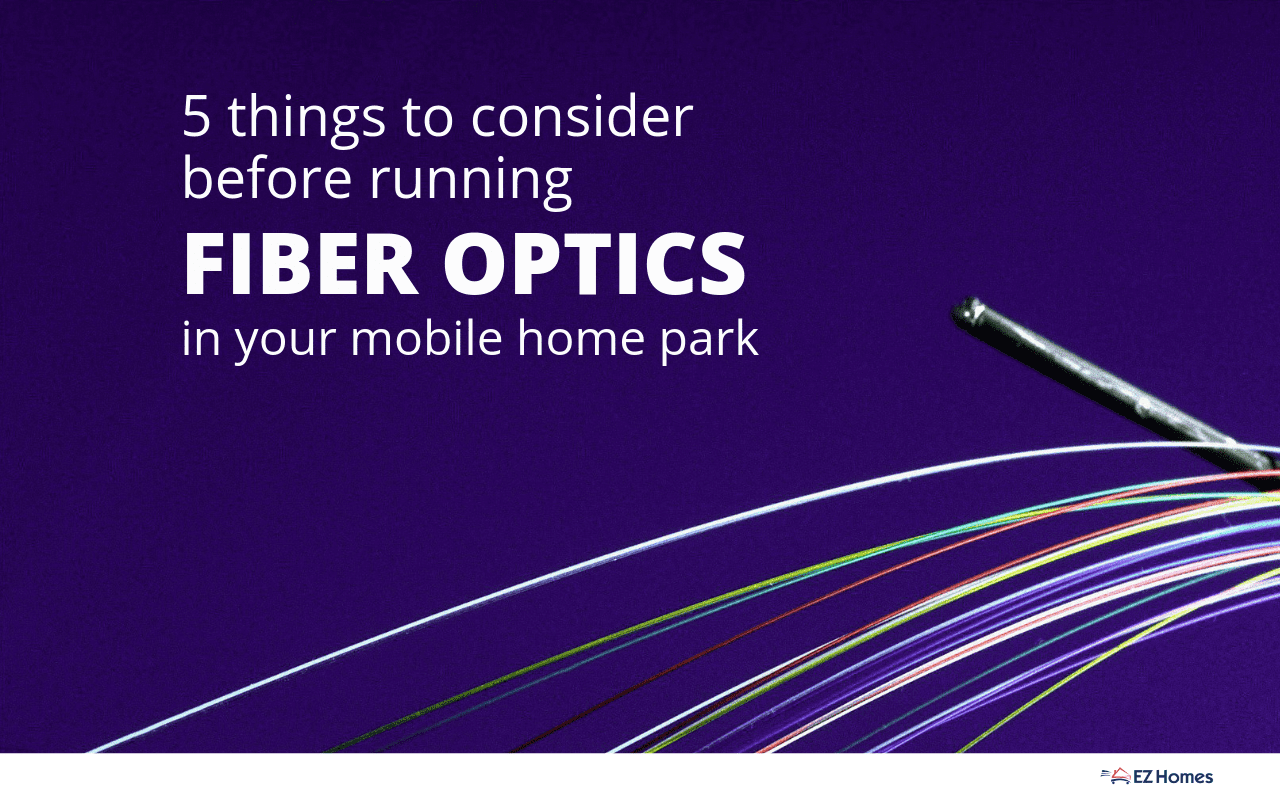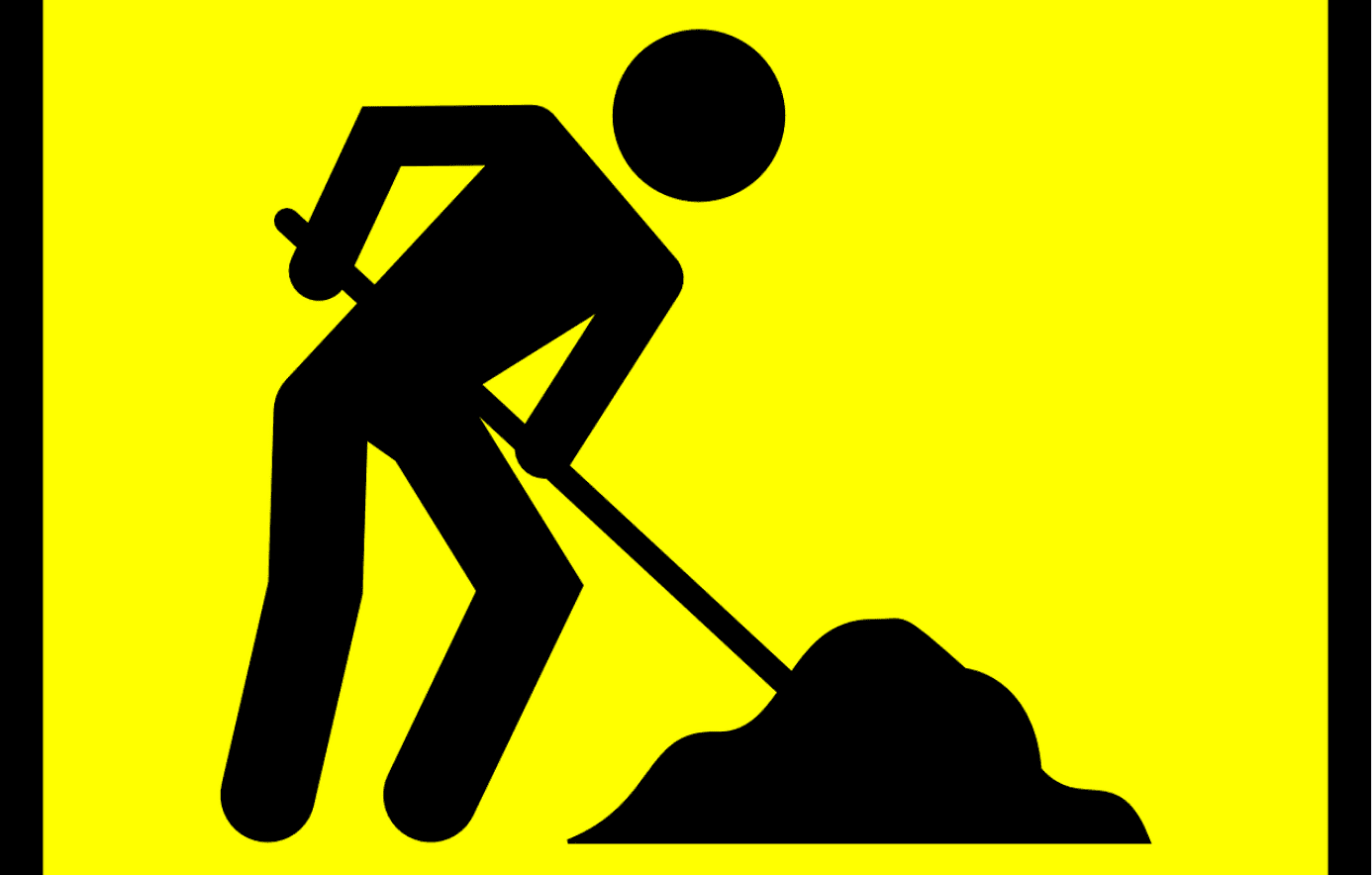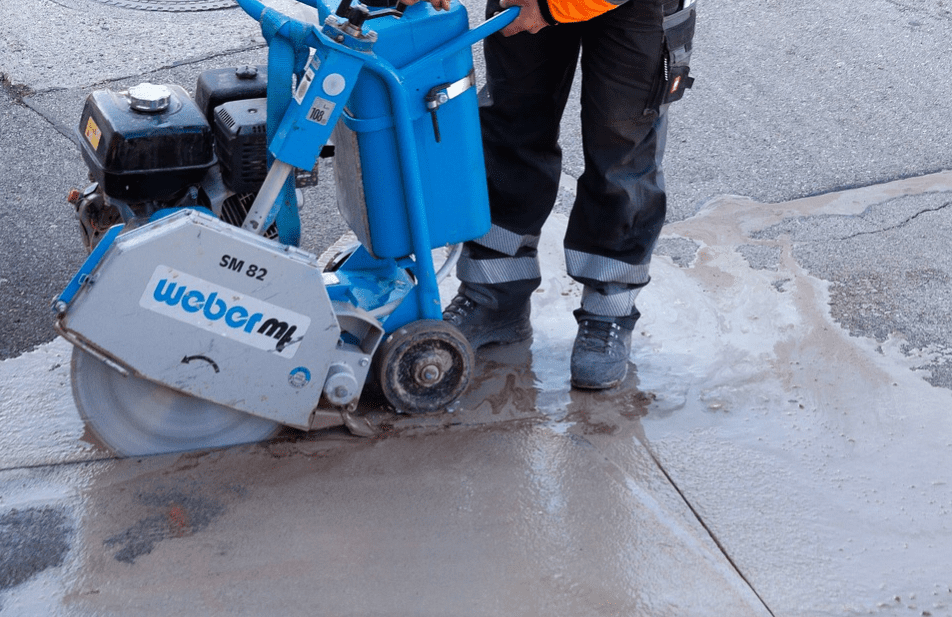Are you thinking that it may be time to welcome the latest and greatest in internet speeds? As a mobile home park owner, you want to be sure that you’re making the best decision.
For the mobile home park dealing with slow internet providers, fiber optics is appealing.

Fiber optic cables are made up of glass strands that are optically pure. The strands are thinner than human hair. They’re made up of a thin glass center. A reflective material surrounds the core and an outer material protects the optic fiber. The fiber optic cable transmits light.
Through total internal reflection, the light is able to travel without hindrance through the cable.
When it comes to data travel, fiber optics are faster than DSL, cable, or satellite internet.
5 things to consider before running fiber optics in your mobile home park
So how do you make the right decision for your mobile home park? If fiber optics are the latest and greatest, why not jump at the opportunity for your park, right?
Before you jump on the fiber optics bandwagon, we’d like you to consider five things. We don’t want to discourage you from fiber optics, but only you can take the information we provide and make the best decision.
It could be the best thing ever. But it could also be a huge pain if you go into a fiber optics agreement uninformed. Now let’s look at these five different things worth considering.
1 – The distance of fiber optic cables of other underground cables or pipes
Before you sign a contract to welcome those fiber optic cables into your park, ask the internet company about their plan. What do they propose for the distance between fiber optic cables and other unground utilities? Underground plumbing and electrical could put the fiber optics at risk if they’re too close to each other.
Find out what the internet’s installation plan is regarding distance from your underground cables and pipes. You could save yourself much unnecessary grief by finding this out.

This doesn’t necessarily make or break your decision either way. Weigh the pros and cons. Even if the fiber optics lay near your underground utilities, it may still be worth the investment.
2 – A list of requirements made to the fiber optics providers
Make your expectations known to fiber optics providers.
Ideally, you want the fiber optics far away from your water lines, electrical lines, sewer lines, and gas lines — if applicable. This was touched on earlier.
Additionally, make it clear that you want the fiber optics cable buried deep in the ground. In the contract, request that the internet provider provide you with a “map” of the fiber optics cables on your property. This will prove useful in the future should you need to do any landscaping or digging on your property.
Ask that they provide you with stakes or some sort of visible queue that notes where the cables are located.
3 – The cost of repairing a cut fiber optic cable
Here’s something else to consider — know the cost of repairing a cut fiber optic cable. Find out if it’s on your dime to repair it should someone accidentally break a cable while digging up the property. And if it is on your dime, how much should you expect to pay?
4 – Find out if you’ll receive some sort of compensation
To be sure, you’re welcoming a company to bring in extra business via your mobile home park residents. It’s only fitting that you should see if you might get a little slice of that pie. Ask the internet provider if they’ll provide you with some sort of compensation for allowing them to do business. It’s on your property, so it would make sense for you to benefit too.
5 – Overhead vs underground fiber optics
In fiber optics installations, you often have two options: overhead fiber optics or underground fiber optics. You’ll need to determine which type of installation is right for you and if the provider offers both options.

Here are some things to consider before going with overhead installation. Will the cables be an eyesore? How many supports will be required and where will they be placed? Is damage more likely due to trees and high winds? Depending on the answers, some mobile home owners may prefer having all the fiber optics underground.
Other park owners may be hesitant about not being able to see the cables should they need to dig into the property. Perhaps overhead is a better option for the layout of your park.
Is fiber optics right for you?
We hope the information above empowers you to come to the right conclusion on installing fiber optics. Each mobile home park operation is unique in its location and in the people it serves.
For other ways to improve your mobile home park, see how mobile home park owners are making a difference.


